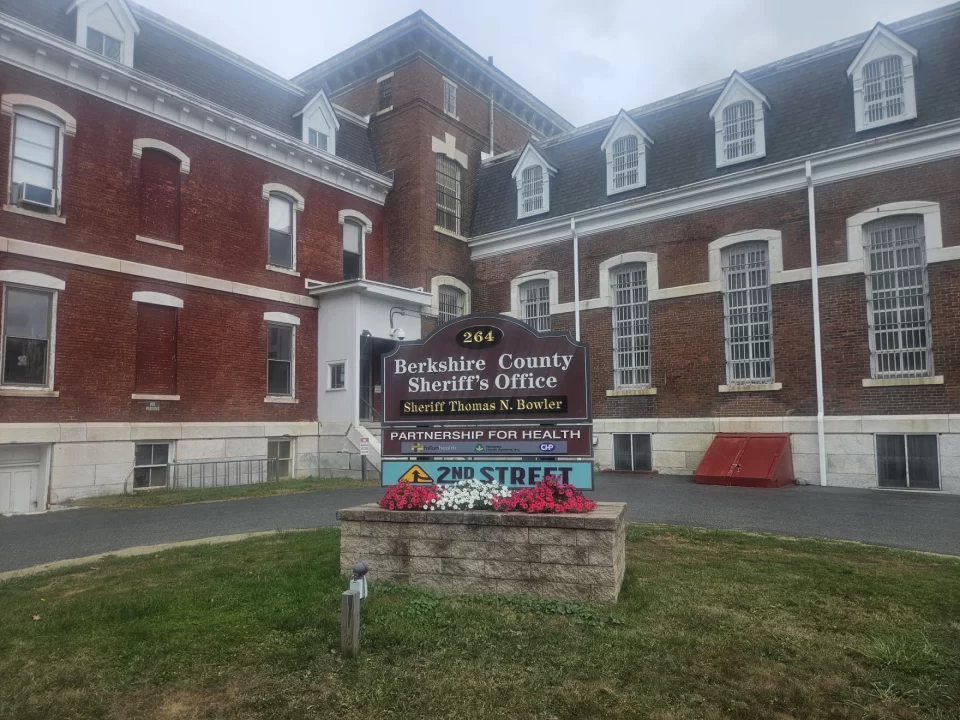
September 24, 2024
A Pittsfield, Massachusetts nonprofit aimed at providing resources and support for formerly incarcerated community members is holding a ribbon cutting and open house this month.
BY WAMC Northeast Public Radio
“We are kind of like a central access hub for folks here who are formerly incarcerated. We don’t duplicate services as much as we refer to our community partners and to the resources that we are aware of in our communities,” Executive Director Lindsay Cornwell told WAMC. “The staff of Second Street are also Sheriff’s Department employees, so the Sheriff’s Department is our largest partner. But you know, we are a 501c3 nonprofit. We function with a board of directors. We have multiple partners in the community- Berkshire Health Systems, Berkshire Community College, Berkshire Museum, Berkshire Innovation Center, Community Legal Aid.”
The work begins behind walls.
“We meet with inmates here in Berkshire County at the Berkshire County Jail and House of Correction in Pittsfield prior to the release, and we also traveled to the [Western Mass Regional Women’s Correctional Center] in Chicopee, Mass, where the Berkshire women are held,” said Cornwell. “We meet with inmates in both facilities, we do reentry work. So, for individuals, it might be just getting to know them, building a rapport with them, and then figuring out what it is that they need help with post release. And so, we start working on that process prior to the release from incarceration, they have all of our information, they’ve been connected to a community navigator from Second Street already.”
The organization helps the newly released secure crucial documents like copies of birth certificates, social security cards, and IDs.
The ribbon cutting and open house is set for September 30th at 2.
“We make referrals for folks to treatment programs, whether it’s for substance use disorder, mental health treatment,” Cornell said. “We help people access hygiene products, clothing. We help people connect to getting a cell phone, obtaining a cell phone when they’re released from jail. I mean, we make housing referrals, we make referrals for employment, we help people build resumes- So, I like to say we pretty much help people with anything and everything that they might need assistance with while they’re releasing from incarceration back into the community.”
The program operates out of the old jail building on Second Street.
“This is a very old building,” Cornwell told WAMC. “The space that we have actually renovated and revamped is the downstairs area. We did a lot of work when we first opened on the second-floor area that we’ve been using for the past two years. With our staff growing, with the amount of clients that we’re serving in Berkshire County, we kind of ran out of room. So, the space wasn’t big enough for the staff, it wasn’t big enough for the amount of people coming in our doors for services.”
The program responded by expanding down to the first floor and doing extensive remodeling, increasing its space from 1,500 to 4,600 square feet.
“It’s called a rotunda, which is just a large open room, basically, and we built an additional office,” Cornwell continued. “So, on top of building an additional office, we’ve repainted, we’ve ordered new furniture, we’ve put some carpeting down. We’re working with a designer, actually from the Clark Art institute, to basically make the space more vibrant, make it more inviting, make it feel a little bit home here, feel less jail like less institutional and just more welcoming.”
The event doubles as a kickoff to another Second Street Second Chances undertaking, the literary journal “Using Our Outside Voices” that’s entirely dedicated to the writing of currently and formerly incarcerated Berkshire residents.
“The biggest misconception about people who are formerly incarcerated is that they’re bad people,” Cornwell told WAMC. “And they’re not bad people, they’re people. They’re human beings. They’ve made mistakes. As a community, as a program, it is our responsibility to try to help these people move on from those mistakes and become better people and become healthier people and to be more connected to our community.”

















































